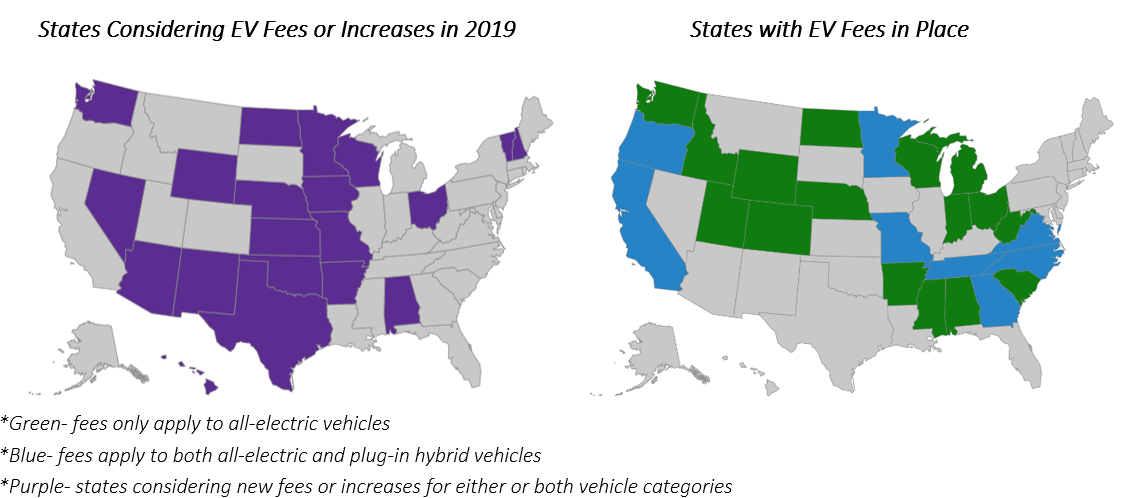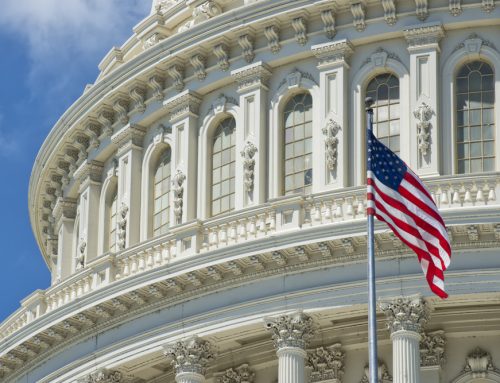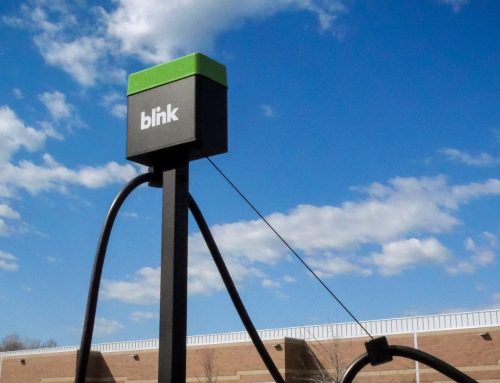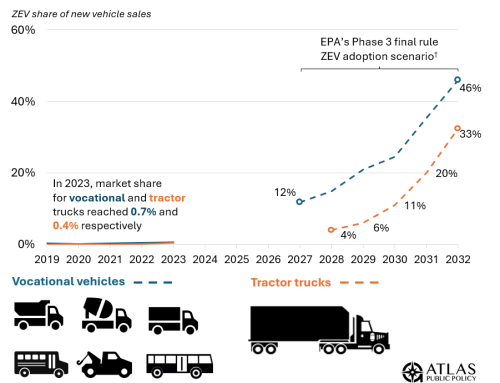
EV fees have been a focus in state legislatures around the country in 2019 and new legislation in Illinois proposes the highest EV fee yet. The $1,000 annual registration fee for all-electric vehicles would be a significant increase from the state’s current reduced annual registration fee for EVs of $17.50. It would also far exceed the highest current EV fee set by Georgia at $214.
Some fear that this fee increase could dampen interest in EVs in the state. In 2018, Illinois ranked eighth in the nation in terms of EV sales with 7,356 EVs sold. EV sales in Illinois have increased dramatically since 2016, when annual sales were 2,677 and the state was ranked 11th. EV manufacturers in the state including Rivian oppose the move, arguing that these EV fees – 400 percent higher than proposed gas tax increases for conventional vehicles – would hinder a growing economy in the state.
Illinois is just one of more than 20 states that have proposed new or increased EV fees in 2019. New fees have already been passed in Arkansas, Alabama, North Dakota, and Ohio. This brings the national total of states with EV fees to 24 states. This number could increase to 34 states if all remaining EV fee bills are passed. Of the fees that are already in place, the national average is just under $130 and $55 for all-electric and plug-in hybrid vehicles respectively. These averages will increase if remaining EV fee legislation is passed. The next highest proposed fee of $350 for all electric and $200 for plug-in hybrid vehicles in Washington falls far short of this proposal in Illinois. While both states are harnessing fees to generate revenue for roads, Washington’s fee increase will also help fund charging infrastructure expansion throughout the state.
EV fees in the near term are more likely to serve as a deterrent to purchasing these vehicles than as a solution to the infrastructure funding woes in the states. Overall, eight out of the top 10 states with the highest fees have fewer than 1 EV per 1,500 people. Fees in these small markets are not going to generate much revenue for infrastructure and could lead consumers to second guess buying an EV if they perceive the fee as unreasonable. Use the dashboards on the Laws, Regulations, & Legislationlanding page to track the latest developments on state legislation and enacted polices on EV fees.


